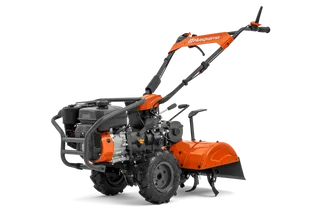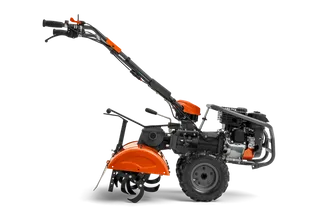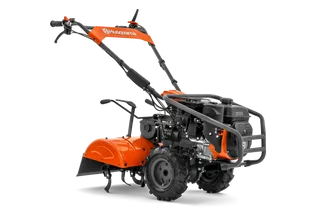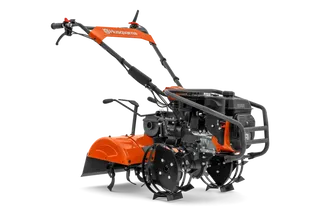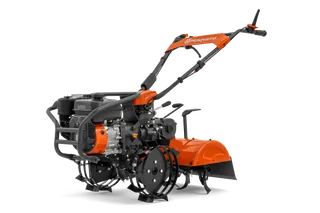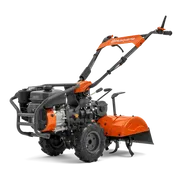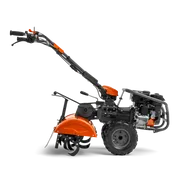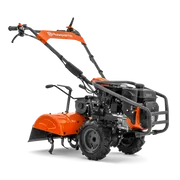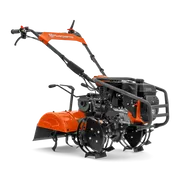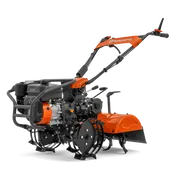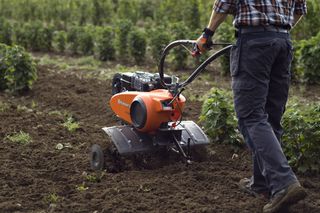1/5
62 cm
Ancho de trabajo
212 cm³
Cilindrada
4,5 kW
Net power at preset rpm Energy1
TR 262
The TR 262 Tiller has a large 62 cm working width and is ideal for frequent cultivation. Counter-rotating tines and high rotational speed make light work of your toughest projects in the yard. Equipped with a reliable, easy to start Husqvarna engine with 2 forward and 1 reverse gear for improved manoeuvrability around the garden.
Especificaciones
Especificaciones
Compara especificaciones y características con otros productos Husqvarna similares.
CompararTR 262 PETROL TILLER Rear tine tiller N.º de artículo: 970 44 85‑01 | |
|---|---|
| Motor | TR 262 PETROL TILLER Rear tine tiller N.º de artículo: 970 44 85‑01 |
| Nombre del motor | Husqvarna Engine |
Net power at preset rpm Energy1 | 4,5 kW |
| Engine RPM at Net Power | 3.600 rpm |
| Air filter type | Oil bath |
| Fuel tank volume | 3,6 l |
| Power/fuel type | Petrol |
| Cilindrada | 212 cm³ |
| Emisión | |
Emisiones de gas (CO2 EU V)2 | 610 g/kWh |
| Equipo | |
| Rubber wheels | Included |
| Transport wheel/s | Not available |
| Foldable handlebar | Si |
| Horizontally adjustable handlebar | Si |
| Vertically adjustable handlebar | Si |
| Capacidad | |
| Ancho de trabajo | 62 cm |
| Profundidad de trabajo | 16 cm |
| Tine diameter | 320 mm |
| Number of tines | 4 |
| Rotational speed (min/max) min | 240 rpm |
| Rotational speed (min/max) max | 240 rpm |
| Cultivator type | Rear-tine |
| Transmisión | |
| Transmission type | Chain/Gear |
| Transmission steps reverse | 1 |
| Transmission steps forward | 2 |
| Dimensiones | |
| Peso | 104 kg |
Asistencia al propietario
Asistencia al propietario
Los manuales de usuario, los manuales técnicos, las piezas de repuesto, las guías y la información de TR 262 se pueden encontrar en la asistencia sobre el producto.
Asistencia sobre el producto para TR 262Renuncia de responsabilidad:
- 1Net power at preset rpm Energy: Potencia nominal neta conforme a SAE J1349, al régimen especificado (rpm)
- 2Emisiones de gas (CO2 EU V): Este cálculo de CO<sub>2</sub> se ha obtenido tras las pruebas durante un ciclo fijo en condiciones de laboratorio de un modelo representativo (principal) del tipo de motor (familia de motores) y no ofrece garantías implícitas ni expresas sobre el rendimiento de un motor particular.
